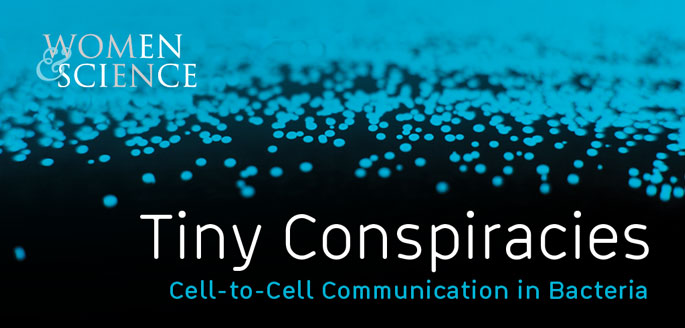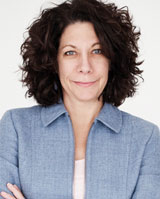
THURSDAY, NOVEMBER 17, 2016
REGISTRATION AND BREAKFAST BUFFET 7:30 A.M.
PROGRAM 8:00–9:00 A.M.
ABBY ALDRICH ROCKEFELLER HALL, 1230 YORK AVENUE AT EAST 66TH STREET
SPEAKER
Bonnie L. Bassler, Ph.D.
Squibb Professor in Molecular Biology
Princeton University
Investigator, Howard Hughes Medical Institute
HOST
Richard P. Lifton, M.D., Ph.D.
President
The Rockefeller University
 We could not survive without bacteria. These single-celled organisms are among the most abundant life forms on earth, and while some species are justly feared as agents of disease, many other species ensure the health of natural environments and of our own bodies. Research by Bonnie Bassler, a molecular biologist at Princeton University, has helped to show that a major reason that bacteria are able to be so productive is because they maintain active social lives. By initially studying bioluminescent marine bacteria that glow in concert, Dr. Bassler and her colleagues identified chemical signals that bacterial cells use to detect each other’s presence. This chemical communication system, called quorum sensing, enables bacterial cells to act collectively when they attain the population density needed to accomplish specific tasks.
We could not survive without bacteria. These single-celled organisms are among the most abundant life forms on earth, and while some species are justly feared as agents of disease, many other species ensure the health of natural environments and of our own bodies. Research by Bonnie Bassler, a molecular biologist at Princeton University, has helped to show that a major reason that bacteria are able to be so productive is because they maintain active social lives. By initially studying bioluminescent marine bacteria that glow in concert, Dr. Bassler and her colleagues identified chemical signals that bacterial cells use to detect each other’s presence. This chemical communication system, called quorum sensing, enables bacterial cells to act collectively when they attain the population density needed to accomplish specific tasks.
The bacteria in the human microbiome, for example, communicate within and across species in order to break down nutrients, educate the immune system, and carry out the myriad other beneficial functions in which these microorganisms participate. Disease-causing bacteria, on the other hand, use quorum sensing to amass a strike force sufficient to launch a successful infectious assault. Dr. Bassler’s laboratory is now investigating potential therapeutic strategies to disrupt or promote quorum sensing. This research may lead to effective treatments for many infections, from cholera to pneumonia to MRSA. Such therapies could help confront the urgent and global problem of antibiotic resistance. Because bacteria serve as the primary sources of many medicines and products of industrial relevance, her work could also provide clues to the development of new treatments for diseases such as cancer as well as products like biofuels.
Dr. Bassler graduated from the University of California at Davis and received a Ph.D. from The Johns Hopkins University. She joined the faculty of Princeton University in 1994. A member of the National Academy of Sciences, she received a MacArthur Fellowship in 2002 and is the recipient of many other honors, including the Wiley Prize, the Lounsbery Award, and the Shaw Prize in Life Science and Medicine. She is also the recipient of the 2016 Pearl Meister Greengard Prize: An International Award Recognizing Outstanding Women in Biomedical Research. She will receive the Prize at Rockefeller University at a ceremony on Wednesday, November 16, 2016.
For more information, please contact Rebecca Wahrman at (212) 327-7285 or rwahrman@rockefeller.edu or register online at: womenandscience.rockefeller.edu